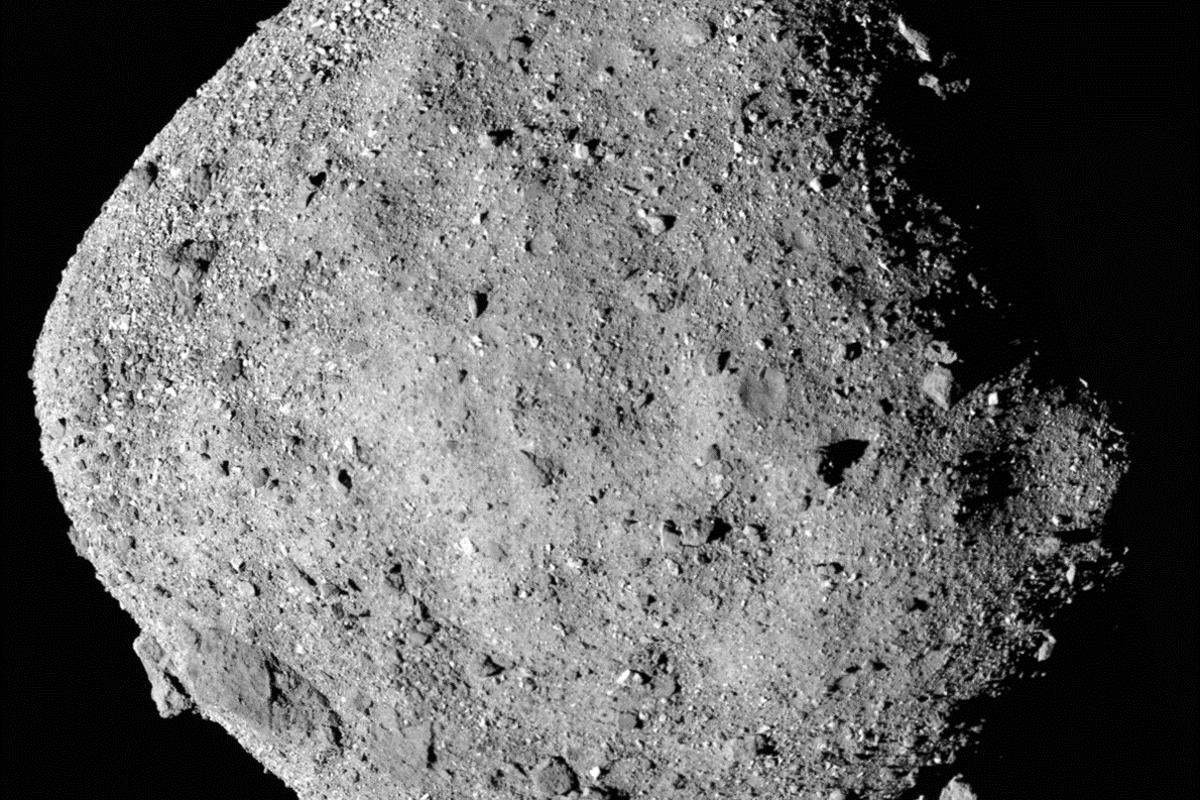
Scientists are preparing to receive pieces of a distant asteroid, which will fall to Earth over the weekend and could reveal where we came from.
On Sunday, a sample collected by a Nasa spacecraft that landed on Asteroid Bennu will float down into the Utah desert, where it will be gathered by scientists.
They will then start work on analysing that material, in the hopes of understanding how planets form and what our solar system was like in its distant past.
Nasa sent its Osiris-Rex spacecraft to Bennu in 2016, and it touched down on the distant asteroid in 2020, and scooped up a piece. Since then, it has been flying back towards Earth to drop the sample back home.
The sample dropped out of Osiris-Rex will float down into the desert, helped by a parachute that should safely allow it to fall to the ground. The spacecraft itself will continue to fly, on its way to start a new mission to study another asteroid towards the end of the decade.
It is the US space agency’s first mission to collect a sample from an asteroid, and is the largest asteroid sample ever returned to Earth.
The capsule is estimated to hold around 250g of rocks and dust collected from the asteroid’s surface.
Nasa will release a quarter of the sample to a group of more than 200 people from more than 35 globally distributed institutions, including a team of scientists from The University of Manchester, and the Natural History Museum.
Asteroid Bennu is a 4.5-billion-year-old remnant of our early solar system and scientists believe it can help shed light on how planets formed and evolved.
Experts say the carbon-rich, near-Earth asteroid serves as a time capsule from the earliest history of the solar system.
It is anticipated that the sample will provide important clues that could help us to understand the origin of organics and water that may have led to life on Earth.
Because the sample has been collected directly from the asteroid, there will be almost zero contamination.
Meteorites that fall to Earth are quickly contaminated from the second they make contact with our atmosphere. This means Bennu can give us an unspoiled glimpse into the past.
Ashley King, UKRI future leaders fellow, Natural History Museum, said: “Osiris-Rex spent over two years studying asteroid Bennu, finding evidence for organics and minerals chemically altered by water.
“These are crucial ingredients for understanding the formation of planets like Earth, so we’re delighted to be among the first researchers to study samples returned from Bennu.
‘We think the Bennu samples might be similar in composition to the recent Winchcombe meteorite fall, but largely uncontaminated by the terrestrial environment and even more pristine.”
Dr Sarah Crowther, research fellow in the Department of Earth and Environmental Sciences at The University of Manchester, said: “It is a real honour to be selected to be part of the Osiris-Rex Sample Analysis Team, working with some of the best scientists around the world.
“We’re excited to receive samples in the coming weeks and months, and to begin analysing them and see what secrets asteroid Bennu holds.
“A lot of our research focuses on meteorites, and we can learn a lot about the history of the solar system from them.
“But meteorites get hot coming through Earth’s atmosphere and can sit on Earth for many years before they are found, so the local environment and weather can alter or even erase important information about their composition and history.
“Sample return missions like Osiris-Rex are vitally important because the returned samples are pristine, we know exactly which asteroid they come from and can be certain that they are never exposed to the atmosphere so that important information is retained.”
The spacecraft launched on September 8, 2016 and arrived at Bennu in December 2018.
After mapping the asteroid for almost two years, it collected a sample from the surface on October 20, 2020. The capsule is expected to land at 3.55pm (BST).
Astrophysicist Professor Boris Gansicke, Department of Physics, University of Warwick, said: “The asteroids in our solar system contain the raw building blocks from which the Earth was made, so working out their composition will tell us a lot of how our planet formed.
“There are many open questions, for instance where did the water that we have on Earth come from? And where did the ingredients that made life possible to develop come from?
“To answer those questions, i.e. measure the composition of an asteroid, you need to get your ‘hands’ on them (or in this case the arm of a space mission), and this is what Osiris-Rex achieved.
“In a nutshell, it’s similar to sitting in front of a delicious dinner and wanting to have the list of ingredients.”
Additional reporting by agencies







